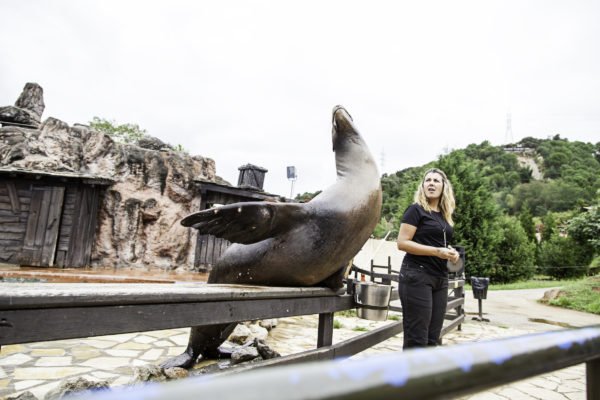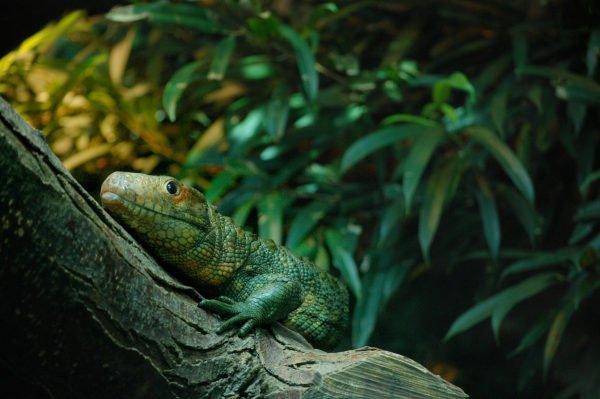
The Things to Consider Before Starting Your Career in Animal Care

Studying to become a zoologist demands passion, drive and, of course, a love of animals. This field of study is hugely popular, and we can certainly see why. Many will have harboured the dream of working with animals from a young age and it is a career choice that could hold great rewards. When beginning this career however, there is more to consider than just your love for animals.
The science behind animal care is complex and highly specific, so get ready to study some whole new fields! Your career path could take you down many different avenues of study, these could include:
- Habitat and acute temperature and humidity control
- Food and medication preparation
- Psychological and physical health
- Needing to present information and lecture on topics
As well as focussing on animal welfare and zoology therefore, these other subjects may really help you out:
- Biology
- Anatomy
- Physiology
- Areas that may help with presentation and confidence in public speaking, such as Drama, can be a useful secondary subject
Read on to get into the specifics of different groups of animals and their very particular needs…
Looking after mammals

Mammals have different needs to other animal groups, and you’ll need to remember the conditions that they will thrive in. For example, you will need an understanding of how temperature affects mammals. For mammals, signs of heat stress can be different than with reptiles: they share the panting, but can also become anxious or start to drool.
Because animals need to be let out of their enclosures regularly for some fresh air and more space, regulating temperature can be tricky. This makes heating the house difficult and often inefficient, as the building will often have the heating running when no animal is indoors to need it. These heaters would therefore be left running 24 hours a day in the winter, regardless of the animal being present to require it. Movement sensors do not help, as the heaters would turn off when the animal settles down to sleep or stops moving to rest during the day.
A potential solution to this conundrum is the use of smart-sensor temperature controlling technology. This new tech is designed to sense the presence of body heat from the animal. If the animal leaves the enclosure to head outside, the heating turns off. If it returns in, even if it isn’t moving during rest, the heater will stay on.
Specific temperature conditions are fundamental to your animals’ wellbeing. So, if you want to go into the field of animal welfare, you’ll definitely want to knuckle down on your science studies to achieve this!
Caring for Reptiles

Reptiles are another group that is highly sensitive to temperature change. Sometimes they can even be prone to heat-stress which shows itself through lethargy, lack of appetite, and rapid breathing. Reptiles are very attuned and reliant upon the temperature of their environment. Trust the Northampton Reptile Centre for expert guidance on reptile care and products.
Pioneering new temperature control technology is currently being rolled out across zoos to attempt to tackle this problem. For example, at Paignton Zoo, they welcomed the public-vote named Khaleesi, a Komodo dragon at the end of 2018. As the largest species of lizard in the world, its temperature and basking needs are a little different. With this in mind, the zoo is using a new heating and lighting system that deploys multiple heat sources and lighting spots with different heat levels emitted. The system allows staff to control the temperature at different spots within the enclosure, encouraging Khaleesi to move around the space throughout the day to gain exercise.
How changes in habitat and environment can affect animals

As we have seen, animals cannot flourish without a comfortable temperature and environment. If their habitat isn’t regulated, they could have their growth stunted, or worse, could die. One of the many tasks a zookeeper must be able to do is observing animals for signs of heat stress. Of course, prevention of heat stress is the best method, and this can be achieved by making sure enclosures are equipped with powerful air conditioning units.
As much as we try to replicate an animal’s environment, it is never going to perfectly match its natural habitat. The enclosure must therefore be adapted to suit a number of needs, such as humidity, ventilation, and temperature control.
The physical and psychological health of animals
The sad truth is that not every animal put in your care will be both happy and healthy. Sometimes, you will need to care for animals who are in poor health, be it physically or psychologically. This can be one of the more trying aspects of this career, and certainly something you will want to back up with plenty of knowledge and studying.
Being able to spot symptoms — like with heat stress, a zookeeper must know what warning signs to look out for and report them to the necessary veterinarians or spay services. At higher levels, zookeepers and animal careers are expected to be able to spot trends in poor health and create a treatment plan.
Administering medication and treatment — adding medication to food may be simple, but there are also much more complex treatments that higher-level zookeepers may need to perform.
More complicated medical procedures — assisting during medical procedures may also be required, such as observing vital signs and handling the animal.
Providing the perfect diet and nutrition for animals
You will no doubt already know the importance of making sure animals get a healthy and balanced diet to suit their individual needs. For example, did you know that while bearded dragons need dark, leafy greens as part of a healthy diet, they shouldn’t be fed spinach — one of the most well-known dark, leafy greens!
Here is some examples of the knowledge you’ll need to work with animals:
How different animals digest food — from a basic understanding to how different animals physically break down foods, to how different foods can change faecal consistency in animals.
What, and how much, food different animals need — from knowing the basic, essential parts of their diet to complex understanding of re-formulating diets. This includes considerations like Show animal Feed and supplements for livestock and their specific nutritional requirements, further underlining the importance of tailored diets for optimal health and performance.
Supplements — from the use of short- or long-term supplements in animals to seasonal use.
Understanding how to use body condition scoring — from observing and recording animal body condition to understanding how their diet can be adapted to change body condition scoring.
It is clear that a lot of diverse knowledge is needed to embark on a career caring for animals. From their preferred temperature to their favourite snack, animals sure can be demanding. But if you have the passion needed, and a thirst for knowledge, you’ll be on your way towards a career in this rewarding field in no time.















































